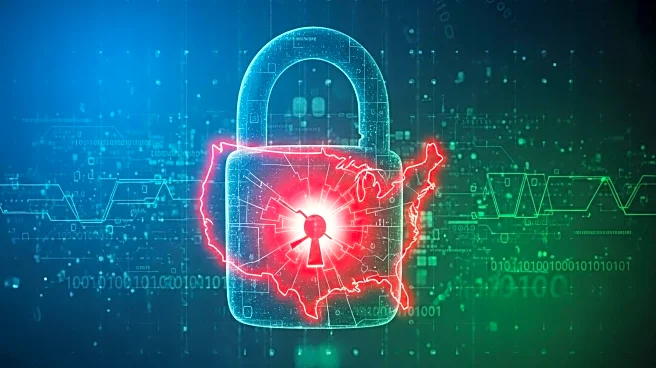What's Happening?
A group of suspected Chinese hackers has infiltrated US software developers and law firms, collecting intelligence that could aid Beijing in its trade conflict with Washington. Cybersecurity firm Mandiant reports that the hackers have targeted cloud-computing firms, stealing proprietary software to exploit vulnerabilities in networks. The FBI is investigating the breaches, which have allowed hackers to remain undetected in US corporate networks for over a year. This cyber-espionage campaign follows the Trump administration's imposition of tariffs on Chinese exports, escalating trade tensions between the two nations.
Why It's Important?
The breach underscores the ongoing cyber threats faced by US firms, particularly in the context of heightened trade tensions with China. The ability of hackers to infiltrate and remain undetected in corporate networks poses significant risks to national security and economic interests. As US firms rely on cloud-computing services, the theft of proprietary software could lead to further vulnerabilities and data loss. The incident highlights the need for robust cybersecurity measures and international cooperation to address cyber threats. The FBI's investigation and potential countermeasures could influence future US-China relations and cybersecurity policies.
What's Next?
The FBI's investigation into the breaches is ongoing, with efforts to assess the damage and remove the hackers from compromised networks. Mandiant analysts predict that the fallout from the breaches could last several months, requiring extensive cybersecurity measures to prevent further intrusions. The US government may consider diplomatic or legal actions against China, potentially impacting trade negotiations and bilateral relations. As the investigation progresses, affected firms may need to implement stronger security protocols and collaborate with cybersecurity experts to safeguard their data.
Beyond the Headlines
The breach raises ethical and legal questions about state-sponsored cyber-espionage and the balance between national security and international diplomacy. The incident highlights the challenges of attributing cyber attacks to specific actors and the complexities of holding nations accountable for cyber activities. The role of law firms as espionage targets underscores the importance of protecting sensitive information in legal and corporate contexts. The breach may prompt discussions on the need for international cybersecurity standards and cooperation to address the growing threat of cyber warfare.











